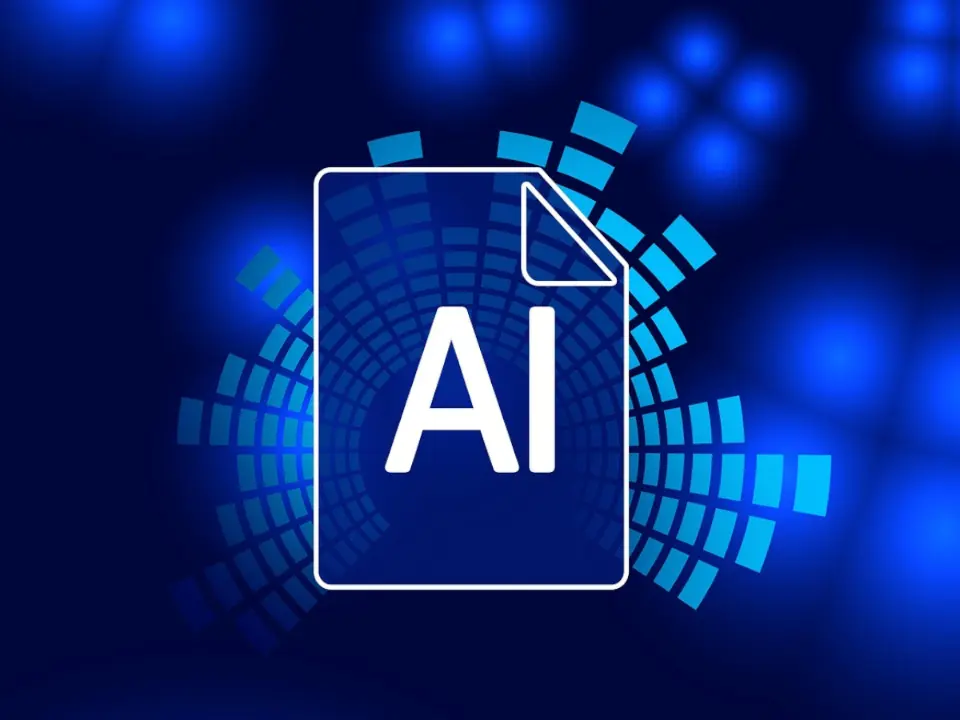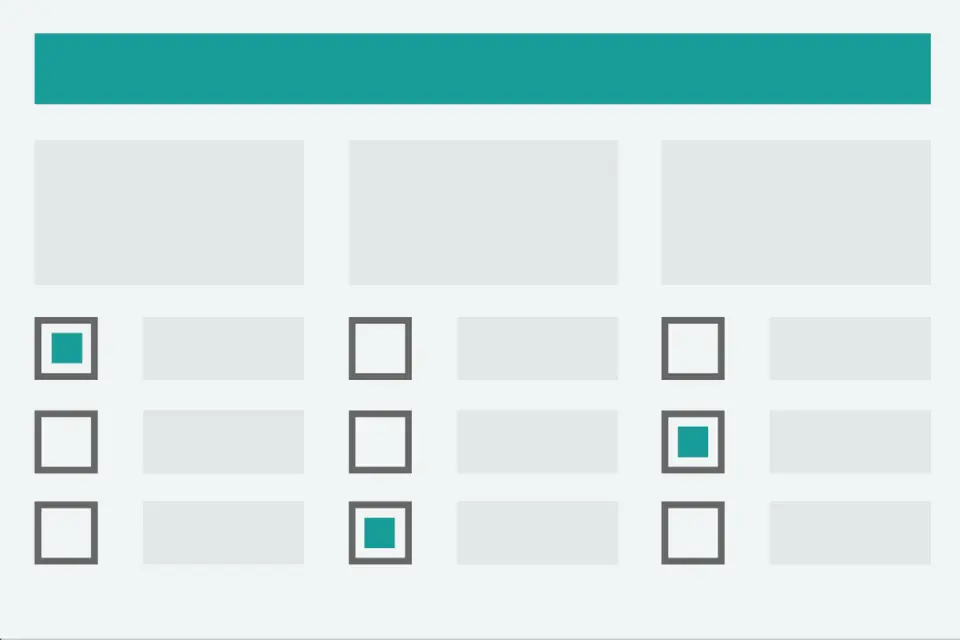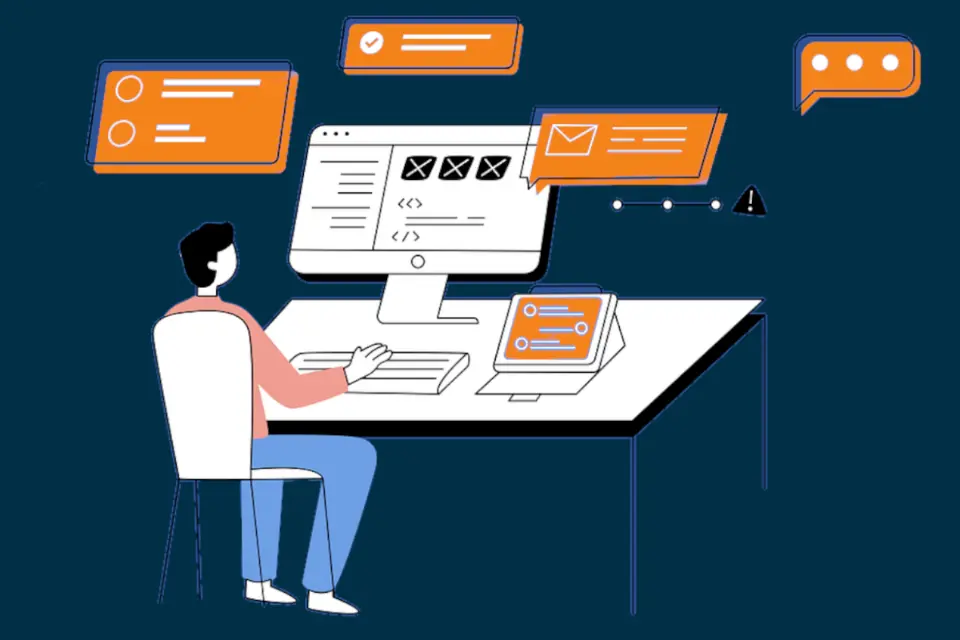
Poyenics
04-03-2025
AI Innovations in SaaS
Artificial intelligence (AI) has become a driving force in the technological world, and AI agents, in particular, are making a significant impact on the Software as a Service (SaaS) industry. These intelligent systems are enhancing website builders, form builders, eCommerce platforms, and subscription management systems. They are making these platforms smarter, more efficient and user-friendly solutions.
What are AI Agents?
AI agents are autonomous software systems designed to perform specific tasks, make decisions, and interact with users in a human-like manner. These agents are powered by artificial intelligence technologies, including machine learning, natural language processing and data analytics. By leveraging these technologies, AI agents can process and analyze vast amounts of data, learn from user interactions, and adapt to new information and environments.
At their core, AI agents can operate independently or in collaboration with humans, enhancing various applications across different industries. Some common examples of AI agents include virtual assistants, customer service chatbots, recommendation engines and/or autonomous vehicles. In the context of SaaS, AI agents are integrated into platforms to automate processes, improve user experience, and drive business growth.
Key Characteristics of AI Agents

AI agents are utilized in a wide range of applications, and they are bringing significant benefits to various industries:

One of the key areas where AI agents are making a difference is in website builders. Traditional website builders require manual input, some level of design expertise and maybe coding knowledge depending on the platform. However, AI-powered website builders can automatically generate websites based on user preferences and requirements. By analyzing user data and preferences, AI agents can create personalized website designs, suggest improvements and even optimize content for better search engine rankings. This level of automation not only saves time but also ensures a more customized and engaging user experience.
One key area in enhancing website builders is the ability of AI agents to take user input and select pre-built website designs and templates that match the customer’s preferences and requirements. This process is similar to what a developer or designer might do when using a website builder to create a site for a customer. However, AI agents can accomplish this within minutes and then populate the design with relevant, generated content.
AI agents can perform A/B testing, which involves comparing two versions of a webpage or design element to determine which one performs better. This helps in refining design choices based on user engagement data. This can help with continuous improvement and enhanced user engagement.

Form builders are essential tools for collecting user information, conducting surveys and generating leads. AI agents enhance these platforms by automating the form creation process, analyzing user responses and providing real-time insights. With AI-powered form builders, businesses can create dynamic forms that adapt to user input, offer personalized recommendations, and improve data accuracy. This not only streamlines the data collection process but also enhances user engagement and satisfaction. Additionally, AI agents can identify patterns in user responses enabling businesses to gain deeper insights into customer behavior and preferences. This may lead to more informed decision-making.

AI agents are also revolutionizing eCommerce platforms by providing personalized shopping experiences, improving customer support and optimizing inventory management. By analyzing user behavior and preferences, AI agents can recommend products, tailor promotions and offer personalized discounts. These features can lead to increased sales and customer loyalty. Additionally, AI-powered chatbots and virtual assistants can handle customer inquiries, resolve issues and provide instant support enhancing the overall shopping experience. Furthermore, AI agents can analyze market trends and competitor strategies so that businesses can stay ahead of the curve and make data-driven decisions.

Subscription-based businesses rely on efficient subscription management systems to handle billing, renewals and customer interactions. AI agents can automate these processes and reduce the need for manual intervention and minimizing errors. By analyzing customer data and behavior, AI agents can predict churn, offer personalized retention strategies and optimize pricing models. For example, AI agents can predict churn, which refers to the rate at which customers stop subscribing to a service. Understanding churn helps businesses develop strategies to retain customers.
In short, AI Agents can help businesses retain customers, increase revenue and improve overall operational efficiency. Additionally, they can analyze customer feedback and sentiment, provide valuable insights into customer satisfaction and areas for improvement and ensure a high level of service and engagement.

While AI agents offer numerous benefits, it is essential to be aware of the challenges and considerations that come with their integration into SaaS solutions. One primary concern is data privacy and security. AI agents rely on vast amounts of data to function effectively. Given that, ensuring that this data is protected and used ethically is crucial. Businesses must implement robust security measures and comply with data protection regulations to safeguard user information.
Another challenge is the potential for bias in AI algorithms. AI agents learn from the data they are fed, and if this data is biased, it can lead to biased outcomes. It is important to regularly audit and update AI algorithms to ensure fairness and accuracy.
Additionally, integrating AI agents into existing systems can be complex and may require significant resources and expertise. Businesses must be prepared to invest in training, infrastructure and ongoing maintenance to fully leverage the potential of AI agents.
Despite these challenges, the benefits of AI agents far outweigh the risks. By addressing these considerations and implementing best practices, businesses can harness the power of AI to transform their SaaS solutions and drive innovation.
The Future of AI Agents in SaaS
The integration of AI agents in SaaS solutions is just the beginning. As technology advances, AI agents will continue to evolve, offer even more sophisticated capabilities and transform the SaaS landscape. One area can be predictive analytics. AI-driven SaaS platforms will incorporate predictive analytics, a technique that uses historical data, machine learning and statistical algorithms to predict future outcomes. This empowers businesses to make informed decisions and anticipate trends.
Emerging trends such as AI ethics, which focuses on the responsible and fair use of AI technologies, and edge computing, which involves processing data closer to the source rather than relying solely on centralized cloud servers, are expected to play significant roles in shaping the future landscape. These advancements will empower businesses to innovate, stay competitive, and deliver exceptional user experiences.
From predictive analytics to advanced automation, AI-driven SaaS platforms will empower businesses to stay competitive, innovate and deliver exceptional user experiences.
Conclusion
AI agents are rapidly transforming the SaaS landscape by enhancing functionality, driving efficiency, and elevating user experiences. As businesses look to the future, embracing AIs potential is not just an option but a necessity for staying competitive in a dynamic market. By thoughtfully integrating AI agents, companies can unlock new levels of automation, personalization and data-driven insights. Now is the time to consider how these innovations can be applied to your own SaaS offerings to catalyze growth and innovation. Take the initiative to explore AIs transformative power and position your business at the forefront of technological advancement.
